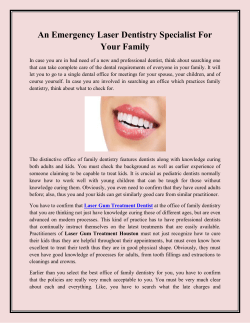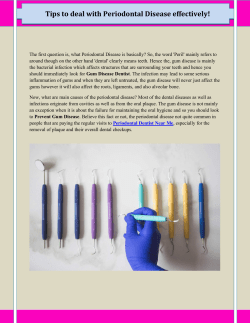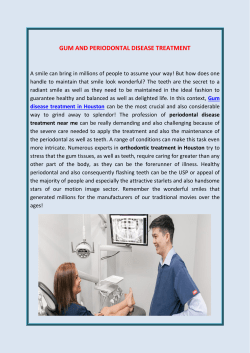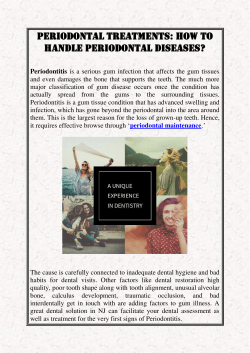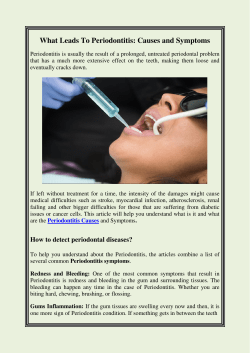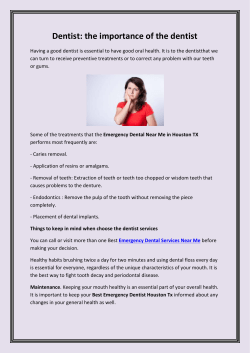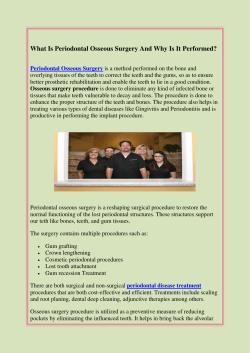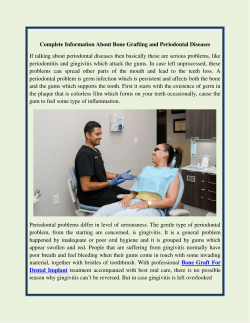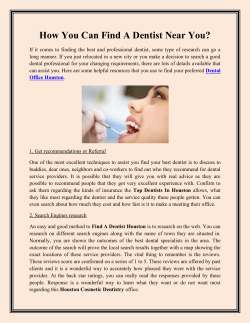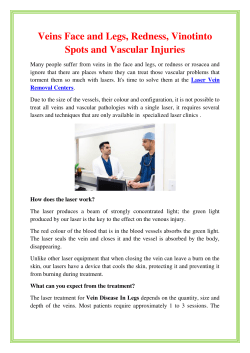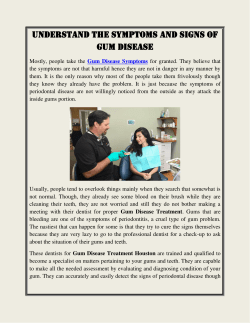
Dental therapy uses and applications
Dental therapy: uses and applications In recent years the laser is taking a special role in dental consultations, in view of its versatility and the new therapeutic applications that are being found for it, although quite of them are still in the experimental stage. Basically, it can be said that the laser function focuses on cutting by thermal ablation, that is, by heat. Currently, two types of laser are used in dentistry. The most pioneering, the diode laser is used to act on soft tissues, such as the gums or mucous membranes. The most recent, that of erbium, also adds the possibility of being used in hard tissues, as is the case of the tooth or bone for Emergency Laser Teeth Whitening. Periodontal laser therapy is a fast, virtually painless approach to the treatment of gum disease. Using only a laser, the gums are treated to remove any diseased tissue. The procedure by Laser Gum Treatment Dentist guarantees your comfort and allows easy recovery and you will experience. From there, you will see the healing of the gums when the root surfaces are clean. Healthy tissue remains to rebuild and maintain the tissue surrounding the teeth. This Laser Gum Treatment Houston can be done in a single visit or multiple visits, depending on the severity of the periodontal disease. Among the applications of laser in dentistry from Affordable Dentist In Houstonit is scientifically proven and currently performed more or less regularly, the following stand out: Periodontal surgery: the high power allows reducing the presence of microorganisms in the periodontal pockets and eliminating the epithelium inside them. Its usefulness in the reduction of periodontal pockets inflammation and its combination with conventional treatment is also being investigated, in order to alleviate postoperative discomfort, since it favours the healing of tissues. Mucosa: recent Best Local Dentist Houston has allowed documenting the use of lasers in the treatment of mucositis and pain in patients undergoing chemotherapy and radiotherapy, applying it previously. Wounds: prevents bleeding due to its scorching activity, which provides healing and, thus, lessens the risk of infections. Dental hypersensitivity: it is an application still under investigation. It seems that strong lasers allow the sealing of the dentinal tubule, while others act on the osteoblasts and the pulp. Orofacial pain: reduces muscle pain by stimulating the production of endogenous opioids. Caries: only has some utility in small caries. Bone bio- stimulation: this is another possible future indication: the stimulation of the osseointegration process in the placement of dental implants. Paresthesia: it seems to reactivate the sensitivity of the nerve to the loss of sensitivity in some area of the face. Orthodontics: it is still in the research phase but it seems that the lower frequencies accelerate the movement of the teeth towards the desired position, while the high frequencies slow it down. It could also be used to reduce the pain caused by the movement of the teeth. Dysfunction of the temporomandibular joint: several Affordable Dental Care Near Me suggest that it may be useful in the treatment of arthrogenic lesions and in the reduction of trigeminal neuralgia.
© Copyright 2026

